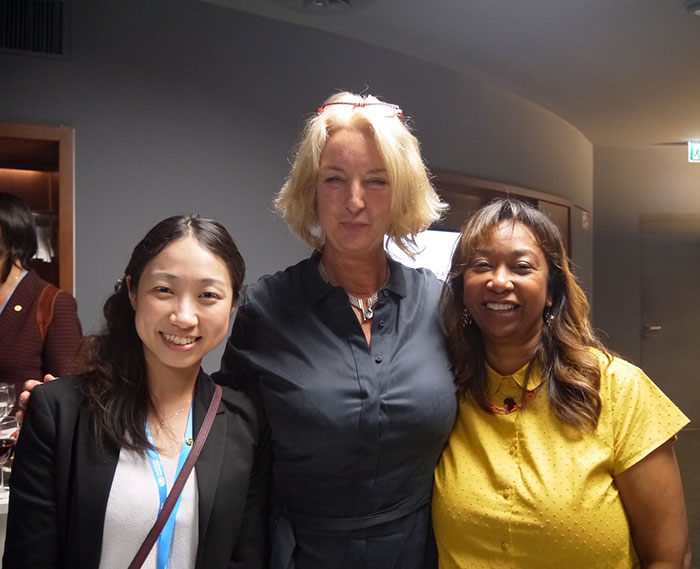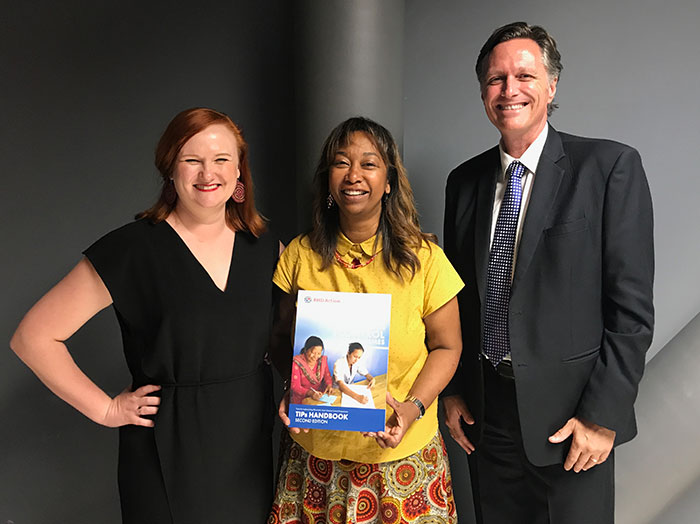Governments Adopt a Global Resolution on Rheumatic Fever and Rheumatic Heart Disease at the World Health Assembly


World Health Organization (WHA), Geneva
Following years of campaigning and advocacy from the RHD community, we are delighted to announce that today, Friday 25 May, Member States of the World Health Organization unanimously adopted a Global Resolution on Rheumatic Fever and Rheumatic Heart Disease at the World Health Assembly in Geneva, Switzerland.
This historic decision marks the first time that Rheumatic Fever (RF) and Rheumatic Heart Disease (RHD) have been recognized as global health priorities on the world stage. The Resolution was co-sponsored by countries from all six WHO regions, demonstrating the urgent need for a global response.
The Resolution on Rheumatic Fever and Rheumatic Heart Disease was written by a group of governments – led by New Zealand supported by South Africa and Namibia– and is accompanied by a summary report from WHO, which calls for a ‘coordinated global response’ to tackle RHD. There was strong consensus among governments that action was needed on a range of fronts, including strengthening primary and secondary prevention of RF and RHD, integrating RHD services into primary health care, securing a reliable supply of benzathine penicillin G, and ensuring a well-resourced and trained health workforce to provide RHD services. Discussions also noted that prevention and control is essential to achieving the Sustainable Development Goals and universal health coverage. As a high-level global policy that demands national and international decision-makers to take action, the Resolution marks a significant step forward towards tackling RHD and RF.
During the Health assembly, the co-founders of RHD action, who led the call for the resolution, Reach (RHD Evidence, Advocacy, Communication and Hope) and WHF convened a side-event featuring the MOHs of New Zealand and Namibia and the governments of Australia, Fiji and representatives from South Africa, Nepal and Uganda. The highlight of the side-event was presentations from two young patients, Christine from Uganda and Buli from Fiji.

Professor Karen Sliwa-Hahnle (middle) and Associate Professor Liesl Zühlke (right) at the Rheumatic Heart Disease side event.
Representing South Africa at the event was the newly-elected President of Reach, Associate Professor Liesl Zühlke from Red Cross Childrens Hospital and WHF President-elect Professor Karen Sliwa-Hahnle, director of the Hatter Institute. Together they will be working very closely with all stakeholders to ensure that governments and the World Health Organization fulfil their commitment to take action on this preventable disease.

Dr Rosemary Wyber (left), Associate Professor Liesl Zühlke (middle) and Prof Jonathan Carapetis (right) from Australia present TIPS 2.0- tools for implementing RHD programmes
At last this is a major acknowledgement of all stakeholders who have helped make RF and RHD a global priority, including advocates, researchers, health workers, the private sector, and of course, people living with RHD. Researchers include Professor Bongani Mayosi and members of the ASAP Programme based at UCT.

The newly elected president of Reach, Associate Professor Liesl Zühlke and the board (Professor Jonathan Carapetis, Professor Kathryn Taubert, Professor Ganesan Karthikeyan with executive director Mr Jeremiah Mwangi and Dr Sophie La Vicente)